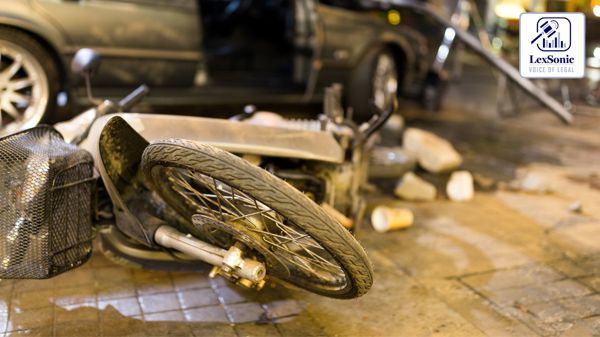Collision of Justice: Supreme Court Reverses Dismissal in Fatal Accident Case.
17 October 2024
Civil Appeals >> Civil & Consumer Law | Motor Accident >> Family Law
In a significant judgment delivered on July 23, 2019, in the matter of Sajeena Ikhbal & Others v/s Mini Babu George & Others the High Court of Kerala affirmed the need for justice in motor accident claims by overturning a previous dismissal by the Motor Accident Claims Tribunal (MACT). The case revolved around the tragic accident that claimed the life of Ikhbal, a government employee, and highlighted the critical role of evidence in determining liability in road traffic incidents.
Background of the Case:
The appellants, comprising Ikhbal’s widow, minor child, and parents, sought compensation following his untimely death on June 10, 2013. Ikhbal was riding his motorcycle when he was struck by a car driven by the respondent. The car was owned by one party and insured by another, while the driver contested the claims, asserting that the accident resulted from Ikhbal’s own negligence.
According to the appellants, the accident occurred when Ikhbal attempted to overtake a parked K.S.R.T.C. bus. As he did so, the car emerged from the opposite direction, colliding with his motorcycle and causing him to sustain fatal injuries.

Contesting the Claims:
Respondents refuted the allegations, arguing that their driver had been cautious and that the motorcycle had collided with the bus instead. They contended that the motorcycle skidded and fell in front of the car without any direct impact. This assertion was supported by the driver’s testimony, which suggested that the bus was located a significant distance away when the accident happened.
Proceedings in the MACT
During the hearings, both parties presented their cases. The MACT evaluated testimonies from six witnesses provided by the appellants and two from the respondents. Despite assessing the potential compensation at Rs. 46,31,496, the Tribunal dismissed the claim, concluding that the appellants had failed to establish that the car was involved in the accident.
Supreme Court’s Analysis:
The appeal reached the Supreme Court, where the primary focus was on whether the findings of the MACT were sound or manifestly erroneous. The court emphasized that it would generally refrain from re-examining evidence unless the findings were clearly perverse or flawed.
A crucial aspect of the appeal rested on the testimonies of key witnesses. Notably, PW-6, who claimed to have seen the accident, maintained that the car struck Ikhbal’s motorcycle. Meanwhile, other witnesses, including the bus driver, corroborated the claim of collision.
The Supreme Court noted that the evidence suggested substantial damage to the car, including broken components consistent with a collision. The court criticized the lower courts for disbelieving PW-6 solely because his statement was not recorded during the police investigation. It concluded that credible witnesses cannot be dismissed based on such technicalities, particularly in cases involving accidents.
The Verdict:
Ultimately, the Supreme Court overturned the findings of the lower courts, asserting that there was ample evidence pointing to the involvement of the car in the accident. The judges reiterated that in motor accident claims, the principle of preponderance of probability should guide the courts, rather than the stricter standard of proof beyond reasonable doubt.
The Supreme Court ruled in favor of the appellants, awarding them the full compensation of Rs. 46,31,496, plus interest. This decision underscored the importance of thorough and fair assessments in motor vehicle accident claims, ensuring that victims and their families receive justice.
Conclusion:
This ruling stands as a pivotal reminder of the judicial system’s commitment to upholding the rights of accident victims. The case exemplifies how crucial it is for courts to consider all evidence impartially, ensuring that justice prevails even in the face of opposing claims. The appeal's success not only brings relief to the grieving family but also reinforces the need for accountability on the roads.
